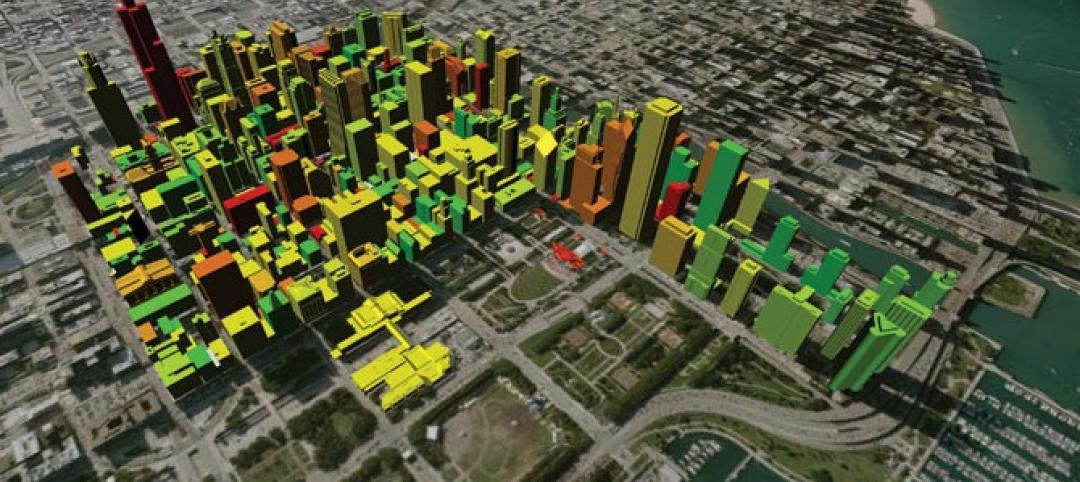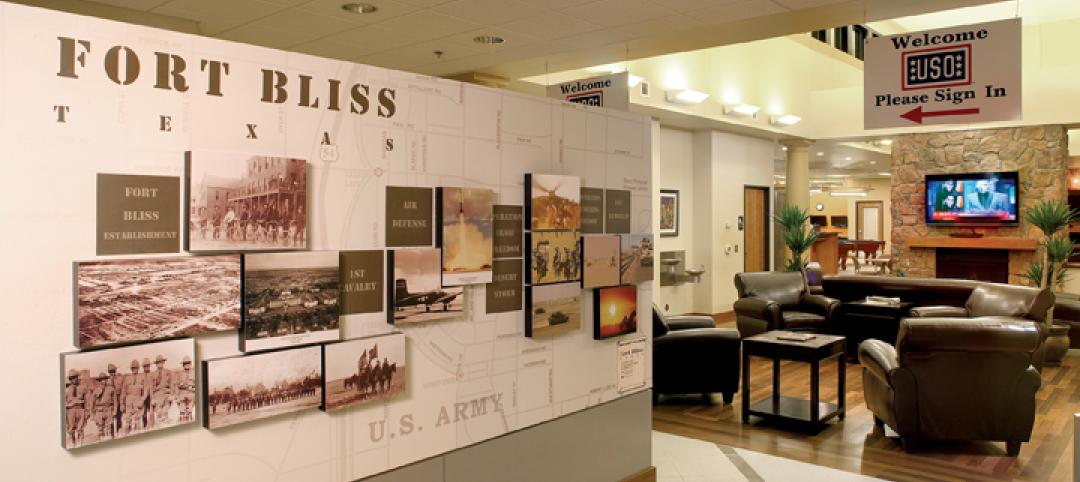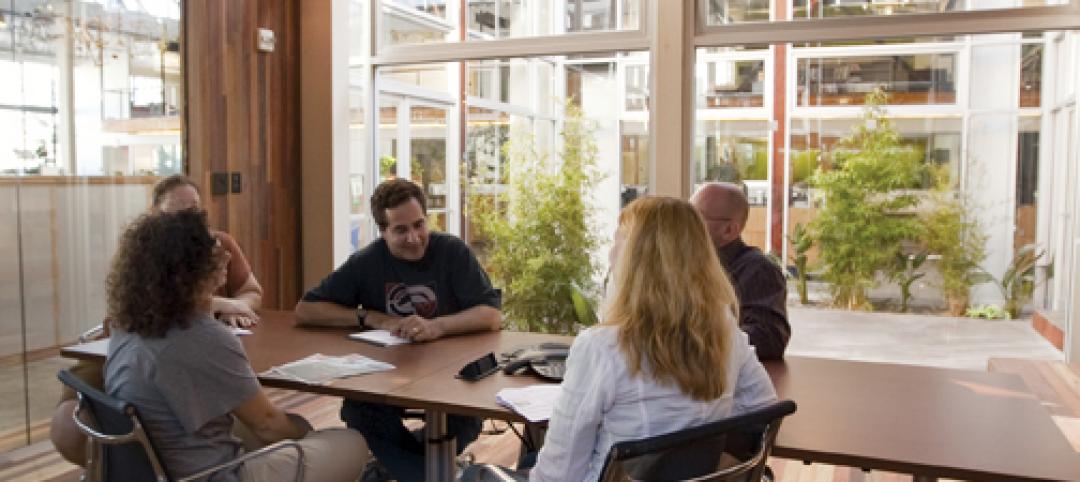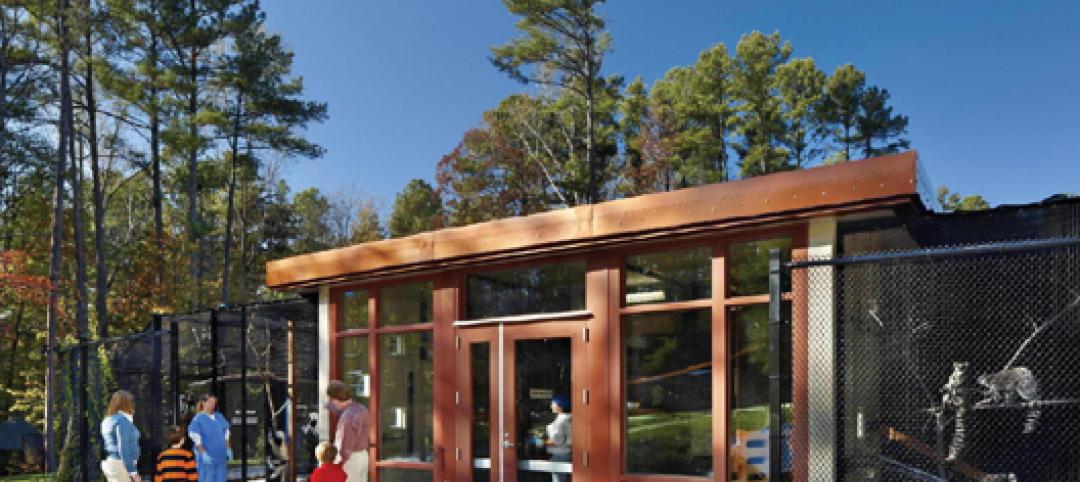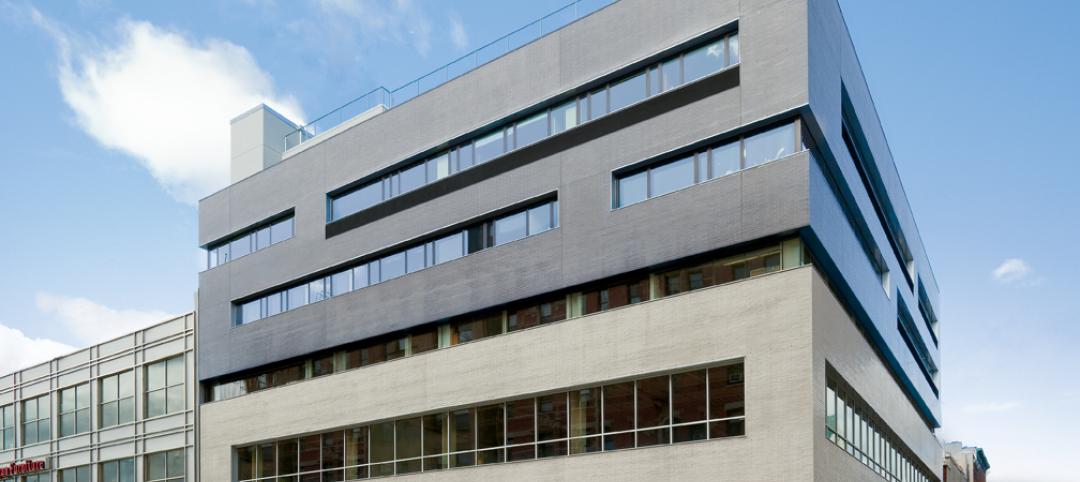Building Teams for apartments, senior living, and other multifamily residential projects may be seeing gray this year, at least in kitchens and bathrooms. Gray color schemes for both types of spaces have grown dramatically in popularity, according to a new National Kitchen & Bath Association Top 10 trends report. Used currently in 55% of kitchens and 56% of bathrooms, gray conveys a sense of chic sophistication, according to the NKBA. White, off-white, beige, and bone also remain very popular, and sepia tones are on the rise.
Transitional-style kitchens and baths—defined as a "seamless blend of traditional and contemporary"—have surpassed traditional styles, which reigned until 2012. Quartz finishes are another "clear trendsetter" for 2013, according to NKBA survey respondents, consisting of ~300 member designers in the U.S. and Canada. Though quartz saw a slight popularity decline in 2012, it is now a close second to perennial favorite granite.
Additional top trends for kitchens include white-painted cabinetry, glass backsplashes, LED lighting, touch-activated faucets, and satin-nickel finishes. Bathroom trends include an increased use of ceramic/porcelain tiles and undermount sinks.
Here's a recap of the top 10 kitchen and bath design trends for 2013 (download the full report at http://www.nkba.org/PressRelease/2013_NKBA_Kitchen_and_Bath_Style_Report.pdf):
KITCHENS & BATHROOMS
1. Shades of Gray
In kitchens, shades of gray have noticeably jumped in use over the past three years. There was a significant increase from 9% of kitchens in 2010 to a remarkable 55% in the final three months of 2012. Similar to kitchens, grays in bathroom remodels have risen from 12% to 56% since 2010.
Whites and off-whites remain the top color schemes of both kitchens and bathrooms, used in 73% and 71%, respectively, an increase of 6 percentage points in both categories over the past year. Beiges and bones remain the second most popular color scheme in both rooms, followed by grays and then browns. Browns are slightly in decline in bathrooms, falling from 39% in 2012 to 35% this year, but sepia tones rose from 11% to 17% in kitchens and 11% to 18% in bathrooms.
2. Rise of Quartz
Quartz was the second most popular counter-surface material used in kitchens and baths last year. This year, it has significantly narrowed the gap with granite, increasing from 69% to 80% in kitchens and from 53% to 65% in bathrooms. Meanwhile, granite held steady in 2013, with 87% usage in kitchens and 71% in bathrooms.
Identified as the key trend for 2012, the popularity of solid surfaces in kitchens continues to rise, growing from 11% in 2010 to 35% in 2013. Marble still remains a popular bathroom vanity-top material, only moderately dipping in popularity from 46% in 2010 to 39% this year.
3. Trending Transitional Styles
In 2012, the popularity of transitional style — a seamless blend of traditional and contemporary — exceeded that of its traditional counterpart, which had been the clear topper in 2010 and 2011. In our latest survey, transition expanded its lead in the kitchen, with usage growing from 59% to 69%, Likewise, transitional styles in the bathroom are still positioned #1, currently used by 61% of NKBA-member designers.
As a consequence, traditional styles sit in second place in both rooms, their popularity holding steady at 60% in kitchens and 58% in bathrooms. Contemporary designs secured a close third in the most recent poll, maintaining a steady 52% usage in kitchens and increasing slightly from 53% to 57% in bathrooms.
KITCHENS ONLY
4. White Painted Cabinetry
Among painted cabinetry, white has stayed on top of the chart since last year. Given its remarkable, upward climb over the past three years, it’s clearly no fad. The popularity of white-painted cabinetry jumped from 47% to 59% in 2012 and further increased to 67% this year.
Use of light, medium and natural finishes has remained more or less consistent over the past year. Light finishes are currently used by 30% of respondents, medium finishes by 54%, and dark finishes by 55%. Use of glazed finishes, which held at 44% in 2011 and 2012, increased by four percentage points this year.
5. Glass Backsplash
The preference for glass splashes has grown dramatically over the past three years: from 42% in 2010 to 64% this year. At the same time, while natural stone tile showed consistent growth during 2011 and 2012, usage dropped from 60% to 55% in the latest survey. Ceramic or porcelain tiles held its top position for the third consecutive year, but overall usage fell by 11 percentage points between 2010 (88%) and now (77%).
6. LED Lighting
Energy-efficient lighting is widely used by member designers in both the United States and Canada. As consumer awareness of energy efficiency has risen, it comes as no surprise that light-emitting diode, or LED, lighting is being specified by a higher percentage of designers, increasing from 70% to 77% over the past year. The significant uptick from 50% in 2010 indicates that this trend has serious staying power.
Meanwhile, there has been no significant change in the use of compact fluorescent lighting (CFL) and incandescent bulbs, with current usage at 26% and 41%, respectively.
7. Touch-activated Faucets
Growing in popularity are touch-activated faucets, specified by 32% of member designers, versus only 20% of designers in 2011 and 2012. Pull-out faucets are still in the top position, as they have been since 2010, with usage rising from 88% in 2010 to 94% this year. Pot filler faucets grab the second spot this year, gaining five percentage points over the past year to 33%.
8. Satin Nickel on the Rise
When it comes to faucet finishes in kitchens, satin nickel has been on the top since 2011, its usage increasing from 42% in 2010 to 60% this year. Bronze or oil-rubbed bronze finishes are also being specified more often, growing from 41% to 50% in the past year. The increased popularity of these three finishes most likely comes at the expense of polished nickel and polished chrome. The latter, which had seen a rise in usage in 2012, dipped from 52% to 47% in the latest survey; polished nickel dropped from 25% to 20%.
BATHROOMS ONLY
9. Ceramic/Porcelain Tiles
Ceramic or porcelain tile flooring has been in slight decline over the past two years, but it remains the most popular of all materials, specified by 83% of the survey participants this year — down from 93% in 2011. Natural stone tiles have also declined since 2011 dropping from 77% to 59% in 2012, and to 57% this year. However, they have been the second most popular type of flooring used since 2011.
10. Undermount sink
Undermounts are in slight decline this year, dropping from 94% in 2012 to 87%. But here again, they remain the most specified type of lavoratory sink — not just in the latest poll, but over the past 3 years. Integrated sink/tops have seen modest growth, increasing from 35% in 2012 to 41% currently.
For the full report, visit: http://www.nkba.org/PressRelease/2013_NKBA_Kitchen_and_Bath_Style_Report.pdf.
Related Stories
| Jan 25, 2011
Bloomberg launches NYC Urban Tech Innovation Center
To promote the development and commercialization of green building technologies in New York City, Mayor Michael R. Bloomberg has launched the NYC Urban Technology Innovation Center. This initiative will connect academic institutions conducting underlying research, companies creating the associated products, and building owners who will use those technologies.
| Jan 25, 2011
Top 10 rules of green project finance
Since the bottom fell out of the economy, finding investors and financial institutions willing to fund building projects—sustainable or otherwise—has been close to impossible. Real estate finance prognosticators, however, indicate that 2011 will be a year to buy back into the real estate market.
| Jan 25, 2011
Chicago invented the skyscraper; can it pioneer sustainable-energy strategies as well?
Chicago’s skyline has always been a source of pride. And while few new buildings are currently going up, building owners have developed a plan to capitalize on the latest advances: Smart-grid technologies that will convert the city’s iconic skyline into what backers call a “virtual green generator” by retrofitting high-rise buildings and the existing electrical grid to a new hyper-connected intelligent-communications backbone.
| Jan 25, 2011
AIA reports: Hotels, retail to lead U.S. construction recovery
U.S. nonresidential construction activity will decline this year but recover in 2012, led by hotel and retail sectors, according to a twice-yearly forecast by the American Institute of Architects. Overall nonresidential construction spending is expected to fall by 2% this year before rising by 5% in 2012, adjusted for inflation. The projected decline marks a deteriorating outlook compared to the prior survey in July 2010, when a 2011 recovery was expected.
| Jan 25, 2011
Jester Jones Schifer Architects, Ltd. Joins GPD Group
GPD Group is excited to announce that Jester Jones Schifer Architects, a Marion-based architectural firm, has joined our firm, now enabling GPD Group to provide architectural services to the Central-Ohio market.
| Jan 21, 2011
Combination credit union and USO center earns LEED Silver
After the Army announced plans to expand Fort Bliss, in Texas, by up to 30,000 troops, FirstLight Federal Credit Union contracted NewGround (as CM) to build a new 16,000-sf facility, allocating 6,000 sf for a USO center with an Internet café, gaming stations, and theater.
| Jan 21, 2011
Manufacturing plant transformed into LEED Platinum Clif Bar headquarters
Clif Bar & Co.’s new 115,000-sf headquarters in Emeryville, Calif., is one of the first buildings in the state to meet the 2008 California Building Energy Efficiency Standards. The structure has the largest smart solar array in North America, which will provide nearly all of its electrical energy needs.
| Jan 21, 2011
Primate research facility at Duke improves life for lemurs
Dozens of lemurs have new homes in two new facilities at the Duke Lemur Center in Raleigh, N.C. The Releasable Building connects to a 69-acre fenced forest for free-ranging lemurs, while the Semi-Releasable Building is for lemurs with limited-range privileges.
| Jan 21, 2011
Harlem facility combines social services with retail, office space
Harlem is one of the first neighborhoods in New York City to combine retail with assisted living. The six-story, 50,000-sf building provides assisted living for residents with disabilities and a nonprofit group offering services to minority groups, plus retail and office space.



